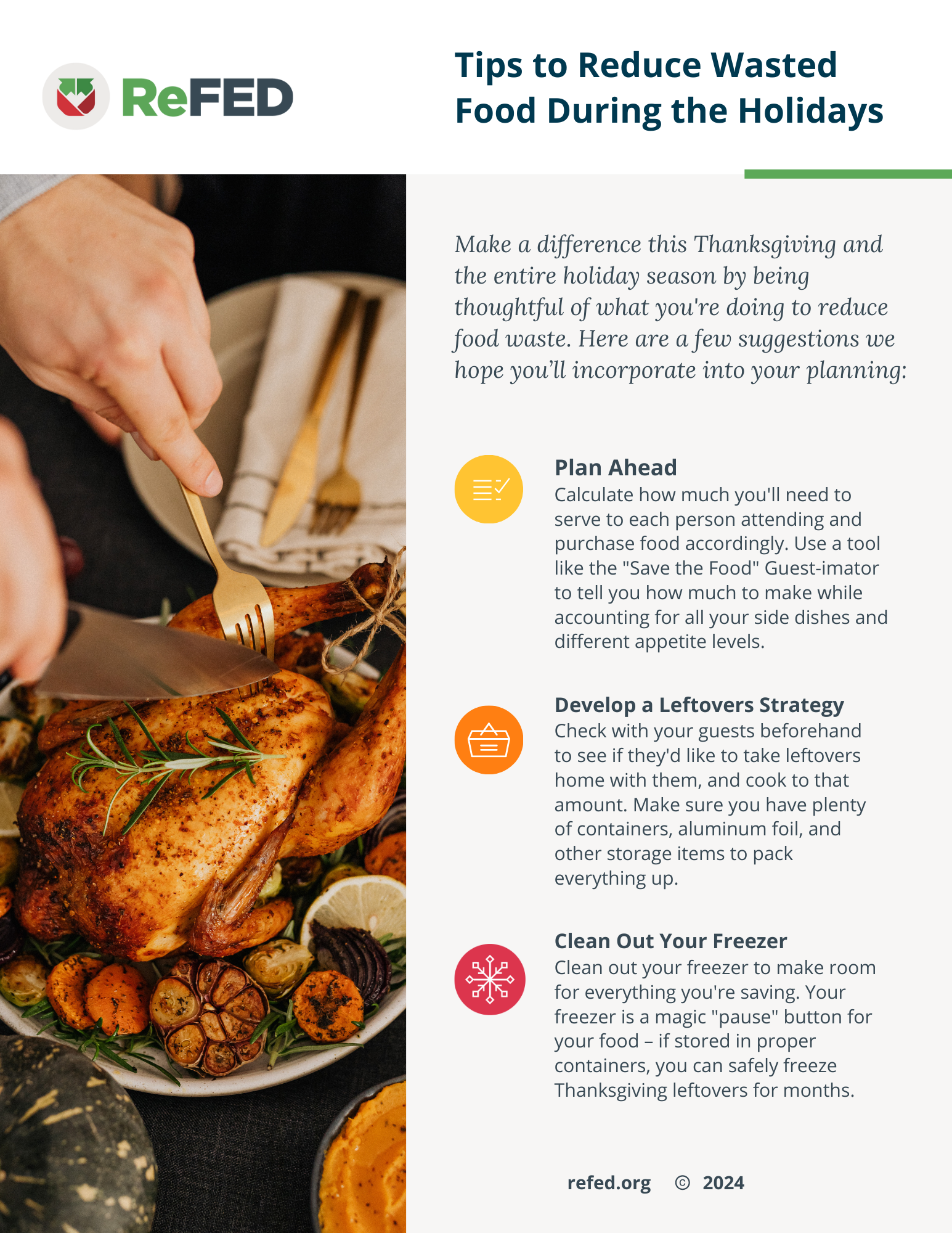 Thanksgiving has always been associated with a feast. While accounts differ, most of us were taught that the holiday dates back to a 1621 harvest meal shared between the English colonists known as Pilgrims and the Wompanoag people. Now over 400 years later, the day has become a feast for an uninvited guest—the trash bin.
Thanksgiving has always been associated with a feast. While accounts differ, most of us were taught that the holiday dates back to a 1621 harvest meal shared between the English colonists known as Pilgrims and the Wompanoag people. Now over 400 years later, the day has become a feast for an uninvited guest—the trash bin.
ReFED estimates that across America 316 million pounds of food will be wasted this Thanksgiving, representing more than $556 million worth of groceries thrown away in a single day. (This is about 1.3 percent more waste than in 2023 due to population growth.) All of this discarded food could provide five meals to each of the 47.4 million people experiencing food insecurity in the U.S.
When food goes to waste, all of the resources that went into producing it go to waste as well, including water, energy, labor, and land. About 105 billion gallons of water was used to produce the food that will be wasted this Thanksgiving, enough for each person in the U.S. to take 18 showers.
It’s worth noting that nearly 58 percent of the food wasted on Thanksgiving will come from just two holiday staples: turkey and milk. To put this in perspective, the amount of wasted turkey alone is equivalent to discarding about 8.2 million whole turkeys—four percent of all turkeys produced in the U.S. each year.
All of this food waste has a huge carbon footprint that’s a major contributor to climate change. The emissions associated with food that gets wasted on Thanksgiving are 798,568 metric tons of carbon dioxide equivalent. This is about the same as what’s emitted from driving 190,000 gas-powered cars for a year.
And when all of the food wasted on Thanksgiving decomposes in landfills, it will release nearly 5,000 metric tons of methane—similar to what’s emitted by powering 26,000 homes’ electricity for a year. Methane is a potent greenhouse gas with a warming effect 80 times more powerful than carbon dioxide over a 20-year period. A recent ReFED report found that nearly four million metric tons or 14 percent of total annual U.S. methane emissions come from uneaten food.
As we gather around the table this year and think of those that are less fortunate than us, we can also consider the environmental footprint of the holiday and the waste that comes from it. With food prices up 28% since 2019, wasting less food is not only good for the environment, it’s beneficial for your wallet as well. If you want to be less wasteful, consider the tips above.
Originally posted on the ReFED blog: https://refed.org/articles/this-thanksgiving-316-million-pounds-of-food-will-be-wasted-across-the-u-s/



